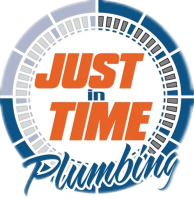Sewer line blockages can be a homeowner’s worst nightmare, causing unpleasant backups, foul odors, and potentially costly damage to your property. Understanding the common causes of sewer line blockages can help you take preventative measures and avoid these frustrating issues. In this blog post, we’ll explore some of the most frequent culprits behind sewer line blockages and provide tips on how to prevent them in your home in Cleveland County, Mecklenburg County, or Gaston County, North Carolina..
1. Tree Roots
One of the most common causes of sewer line blockages is tree roots infiltrating the pipes. Tree roots are naturally drawn to sources of water, making sewer lines an attractive target. Over time, tree roots can penetrate the pipes, causing cracks, leaks, and blockages. To prevent tree root intrusion, avoid planting trees and shrubs near your sewer lines, and consider installing root barriers or using chemical treatments to discourage root growth.
2. Grease and Fat Buildup
Pouring grease, fat, and oil down your drains might seem harmless, but over time, these substances can solidify and accumulate in your sewer lines, leading to stubborn blockages. To prevent grease and fat buildup, avoid pouring cooking oil and grease down the drain. Instead, dispose of these substances in the trash once they’ve cooled and solidified.
3. Foreign Objects
Flushing non-biodegradable items down the toilet or pouring them down the drain can lead to sewer line blockages. Common culprits include sanitary products, paper towels, baby wipes, and even small toys. To prevent blockages caused by foreign objects, only flush toilet paper and human waste down the toilet, and avoid pouring anything other than water, soap, and human waste down your drains.
4. Hair and Soap Scum
Hair and soap scum can accumulate in your drains over time, leading to clogs and blockages in your sewer lines. To prevent hair and soap scum buildup, install drain screens or traps in your sinks, showers, and tubs to catch hair and debris before they can enter the pipes. Regularly clean these screens or traps to prevent buildup.
5. Aging Pipes
As sewer lines age, they can deteriorate, corrode, and develop cracks and leaks, leading to blockages and other plumbing problems. If you live in an older home with aging sewer lines, it’s essential to have them inspected regularly by a professional plumber. Catching and addressing potential issues early can help prevent costly repairs and damage to your property.
6. Fluctuating Temperatures
Extreme temperature fluctuations can cause the ground to shift, leading to sewer line misalignment, cracks, and damage. This can result in blockages and leaks in your sewer lines. To prevent damage caused by fluctuating temperatures, consider insulating your sewer lines to protect them from temperature extremes and minimize the risk of blockages and leaks.
7. Corrosion
Corrosion can occur in sewer lines made of certain materials, such as cast iron or galvanized steel, especially in areas with acidic soil or water. Over time, corrosion can weaken the pipes, leading to cracks, leaks, and blockages. If you suspect corrosion is affecting your sewer lines, it’s essential to have them inspected by a professional plumber and consider replacing them with more durable materials, such as PVC or HDPE.
In conclusion, sewer line blockages can be caused by a variety of factors, including tree roots, grease and fat buildup, foreign objects, hair and soap scum, aging pipes, fluctuating temperatures, and corrosion. By understanding these common causes and taking preventative measures, you can help protect your sewer lines and avoid costly plumbing problems. If you’re experiencing frequent sewer line blockages or other plumbing issues, don’t hesitate to contact Just in Time Plumbing for professional assistance.

